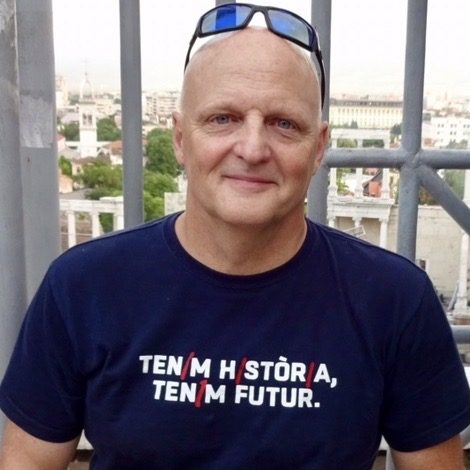The search for truth is always difficult and deeply enmeshed with questions of social power. As the old saying about history being written by the victors suggests, the powerful really do have an inordinately strong ability to propagate and control what passes for reality in the public square. And, as I’ve suggested before, they use this prerogative to assiduously produce images and stories that portray them and the policies they advance in the most positive possible light.
Just as important as their capacity to propagate schemas of “reality” is their ability to disappear those discourses that threaten to undermine their effective control of what is “real” such as, say, the murder of innocent peasants that enables a given subset of the overprivileged class to further expand their realm of pecuniary and political control within a culture.
This disappearance service is most often provided by professional historians and journalists who, while they enjoy slathering themselves with encomiums like “intellectually impartial” and/or “fiercely independent,” are, more often than not, quite content to not show the public what the powerful do not want that public to see.
It was in response to the systematic erasures of past crimes and atrocities that the genre of testimonial literature arose in Latin America during the last 3 or so decades of the 20th century. The idea was to eliminate to the highest degree possible the role of clearly corrupted mediating institutions in the creation of guiding social stories, or discourses.
How?
By seeking out those who had survived the violence visited on them by the wealthy and their willing accomplices in the state, listening to their stories, and making those stories available to audiences outside the immediate sociological space of the victims. In this way, it was held, the powerless would preserve history that might otherwise be forgotten, engage the dignifying process of talking back to their tormentors, and remind those in power in other places of the need to remedy their plight.
What’s not to like?
Isn’t this, in many ways, what those of us who write at places like Brownstone are effectively trying to do during these times of rampant social destruction and institutional rot?
It would seem so.
Unfortunately, however, not all movements remain true to original visions of their founders. As the laudable ethos of testimonial literature spread from departments of Hispanic Studies to other humanities disciplines in US universities, something got lost in the process.
What began as an attempt to broaden our understanding of the past became something very different in the hands of the increasingly woke offspring of the original proponents of testimonialism. This something was characterized by two troubling, and if we think about it, patently ridiculous presumptions.
The first is that those who have been victims of corrupt mediating institutions always speak the unqualified truth. The second is that these witnesses to past crimes and/or those that promote their voices are themselves congenitally free of the base desires for power and influence that have animated the lives of those they see as their tormentors.
Ask yourself. Does having been a victim insure that one will not ever use every tool at one’s disposal, including testimonialism itself, to fatten one’s account of social power and prestige?
Of course not.
Yet as we look around this corrosive notion—which is gleefully heedless of the abundant evidence of the human tendency toward self-dealing and self-deception—goes largely unchallenged in our public conversations. And in the few instances when it is pointed out that a self-anointed victim just might also be an untruthful and shameless seeker of power, those raising the question are trampled by organized online mobs.
As a result, people of intellectual good faith, which is to say, those dedicated to calibrating the good and the bad in all intellectual and social proposals regardless of their tribal provenance, are increasingly afraid to raise their heads above the parapet.
More importantly and perniciously, it has consolidated—to use a term developed in the context of Spain’s numerous 19th century military coups—a culture of the pronunciamiento throughout our civic, intellectual and scientific spheres.
If “I” “pronounce” that those who don’t pursue justice for my self-designated sexual, medical or identitary cause with the fervor that “I” and my chosen allies have decided it merits, then “they” can quite rightly be labeled a malicious hater and danger to the social peace. And if they refuse to accept that appellation lying down, “I” and my cadres have every “right” to call in the mob and effectively banish them from the public square.
It gets worse.
The unfortunate lessons of this bastardized deployment of testimonialism have not been lost on the powerful who are, of course, always looking for new methods for expanding their purchase of social and financial capital.
Seeing the rampant power-garnering success of online pronunciamientos during the last 6 years or so, they have adopted it as one of their prime tools of “governance..” Why go to the bother of making arguments when you can simply trot out your own sovereign and unassailable personal “testimony” of the truth?
We are thus treated to the ongoing reality of a feedback loop between these ultra-powerful movers and shakers and the thirty percent army of authoritarian “liberal” brownshirts who are inordinately well-represented in our culture-making institutions.
When you challenge a position proffered by one side or another of this two-headed monster on its merits, they feel no need to respond to the query in any meaningful way. Rather, they simply remit the questioner to the “unassailable” authority of the other “head” of the beast. The goal of this repetitive insider game of tag is, of course, to convince those of us on the outside of the futility of challenging their edicts. And, unfortunately, it works with many.
But what happens to those who, after all these attempts to cow them into irrelevance, continue to ask impertinent questions?
Well, here is where we see perhaps the most grotesque appropriation of testimonialism’s nobly-inspired practices: the spectacle of the most powerful among us portraying themselves as the world’s ultimate victims, laying the groundwork in this way, for the effective banishment of those who refuse to bow down before their evidence-free, or evidence-challenged personal renditions of the “truth.”
This is what Fauci did when he declared himself the poor, unfairly embattled emissary of “science itself.” And this has been what the Biden cabal, fully backed, no less, by the enormous repressive apparatus of the Deep State, has done at every turn, first with January 6th protestors, then with the unvaccinated and now with the seeming majority of citizens who refuse to recognize the providential nature of his presidency.
Make no mistake about it. These are dog whistles designed to prime the 30% army of cancellers to work their magic in the upcoming campaign to further take down the non-complaint.
Testimonio, or testimonialism, as I have rendered it in English, was a very noble and necessary attempt to salvage and distribute the disappeared history of the many victims of military government and economic power in Latin America’s recent history. After it rightly gained a foothold in the American academy, its laudable emphasis on widening the chorus of voices involved in the making of the historical record caused it to spread like wildfire to other humanistic disciplines. Its fruits were many.
But somewhere along the way, this drive broadening our understanding of the past was commandeered by academic cynics who saw in its exaltation of the personal a way to effectively marshal power without going through the arduous work of having to convince others of the wisdom of their interpretations or their policy prescriptions.
More alarmingly, these same cynics began openly encouraging students to eschew argument and rely on the allegedly unassailable reality of their personal stories, and/or their personal, if often grotesquely ill-informed, interpretations of the past.
“Like, I feel…” is now arguably the single most uttered phrase in our college classrooms today, and it would seem, in an ever-growing percentage of our “educated” young.
Since these students have often not been forced to structure arguments in the crucible of the classroom (being allowed instead to substitute their personal testimonies rooted in the flotsam and jetsam of popular culture and woke orthodoxies for ordered argumentative discourse), they do not know how or why they should demand such well-honed explanations from others.
“If, like, Fauci, like, says it’s safe and effective and the President, like, says we need to do it to protect the vulnerable, like, what more do you want?. Are you, like, one of those anti-vaxxers or something?”
This virtual dialogue between no-reason issuers of edicts and young citizens who don’t demand arguments forms a virtuous circle…to the benefit, of course, of those already in possession of power.
We must begin to stubbornly hold our places when both the powerful old, and the insouciant young, spring the “agree-with-my-sound-bite-version-of-the-truth-or-be- banished” gambit on us. Yes, they will amp up the volume to try and get us to cower and fold. We need to be stubborn and conflictive with them in ways that many of us never wanted, or believed we could be.
If we do otherwise, we are, I honestly think, looking at the end of both democratic republicanism and the ideal of pursuing truth through study.
Published under a Creative Commons Attribution 4.0 International License
For reprints, please set the canonical link back to the original Brownstone Institute Article and Author.









